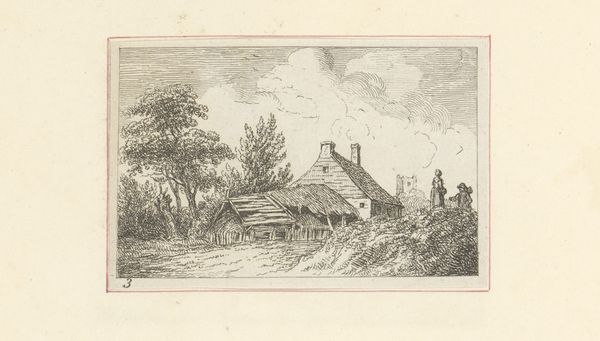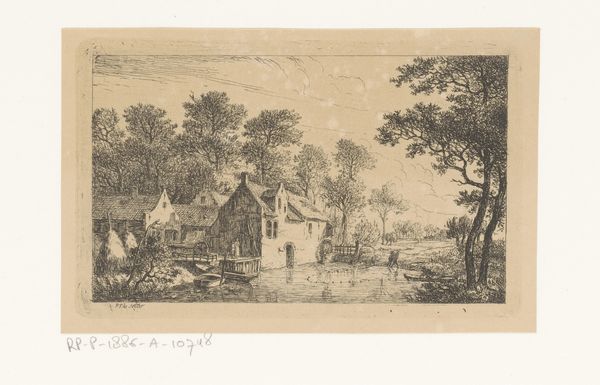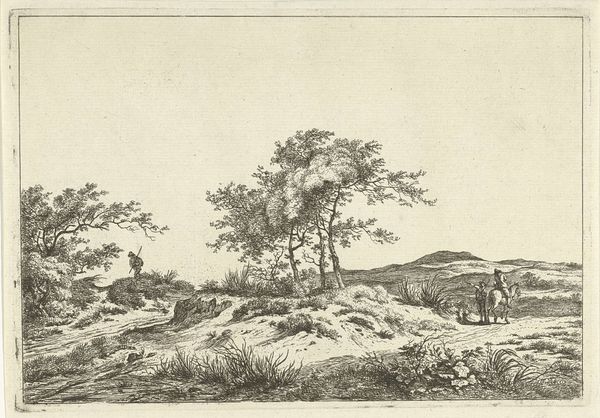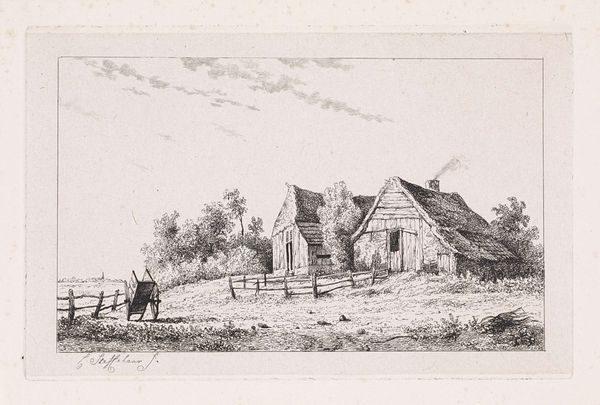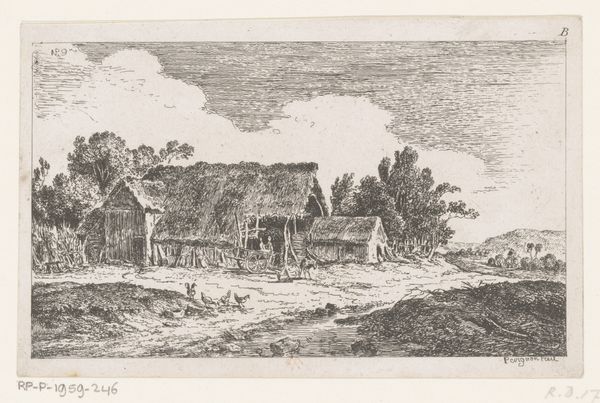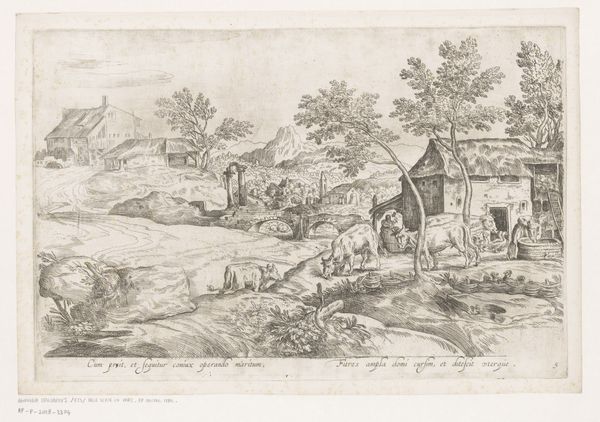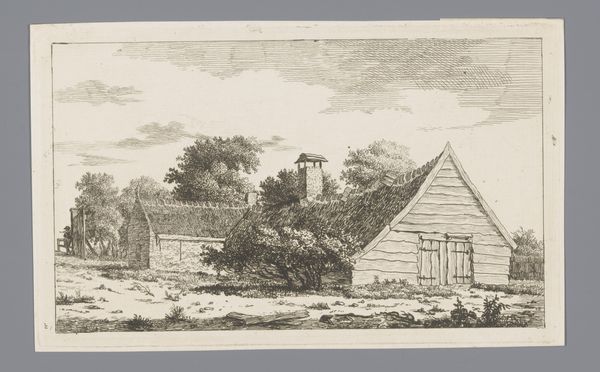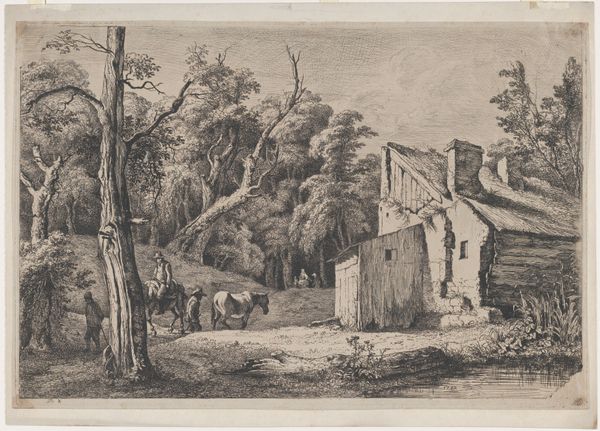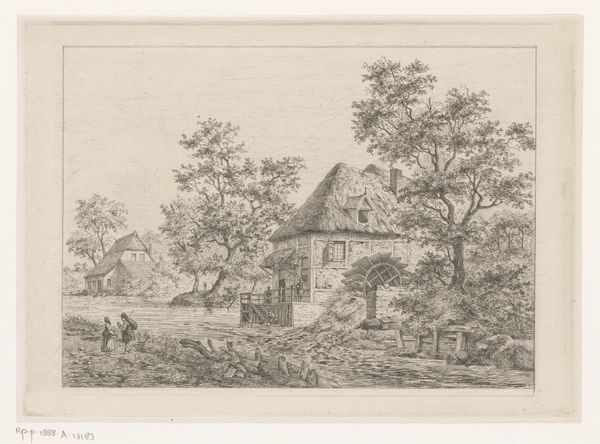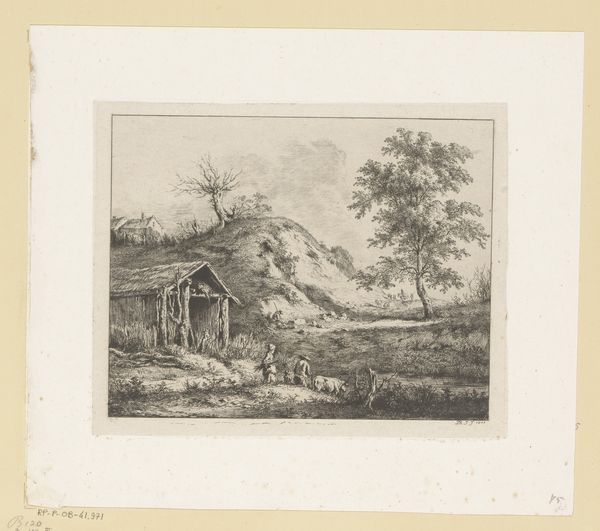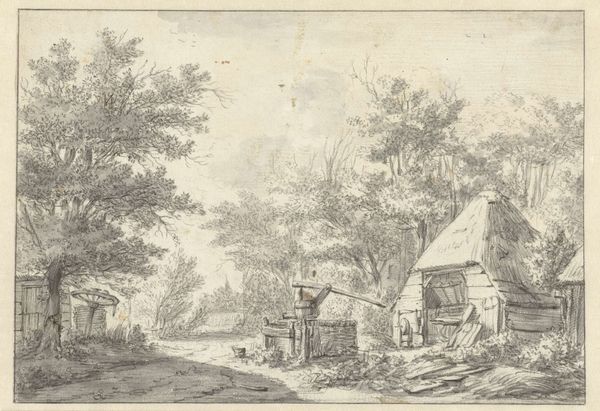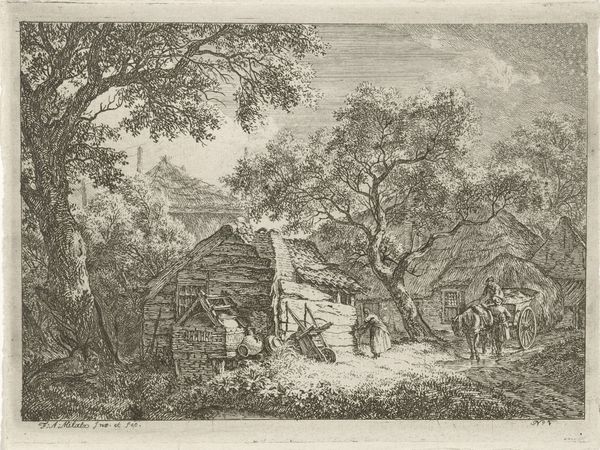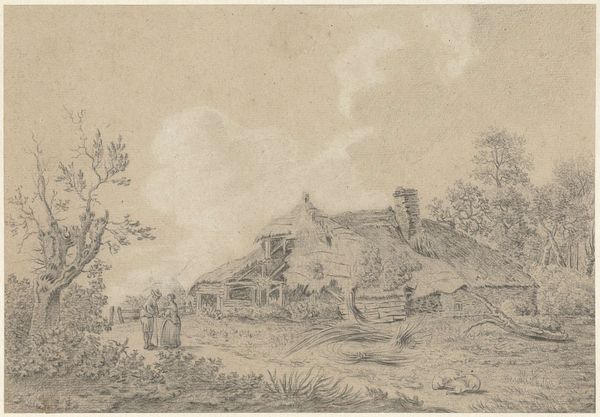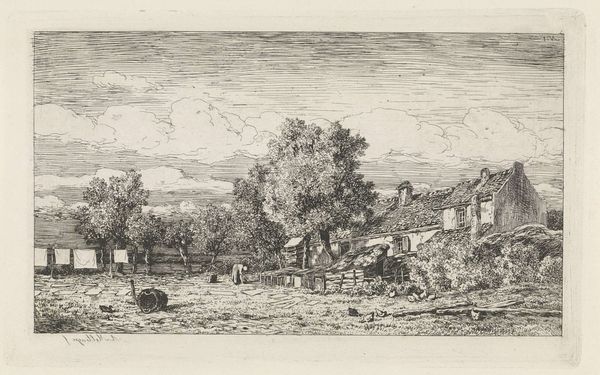
etching
#
dutch-golden-age
#
etching
#
landscape
#
etching
#
realism
Dimensions: height 118 mm, width 184 mm
Copyright: Rijks Museum: Open Domain
Cornelis Steffelaar made this print, titled "Village along a Road," sometime in the first half of the 19th century. The artist gives us a tranquil scene of rural life, but this modest image speaks volumes about the changing social and economic conditions in the Netherlands at this time. The Dutch countryside, with its villages and farms, held a special place in the national identity. Steffelaar’s print reflects a nostalgia for the traditional way of life, even as the Netherlands was undergoing significant transformations. The rise of industrialization and urbanization was shifting the population away from rural areas, leading to concerns about the loss of traditional values and social structures. To understand this print fully, we can look at the institutional history of Dutch art and the art market. Archival records from the period will show that Steffelaar was participating in a broader artistic movement that sought to capture and preserve the essence of Dutch rural life. This required new ways of thinking about whose lives were worthy of representation.
Comments
No comments
Be the first to comment and join the conversation on the ultimate creative platform.
